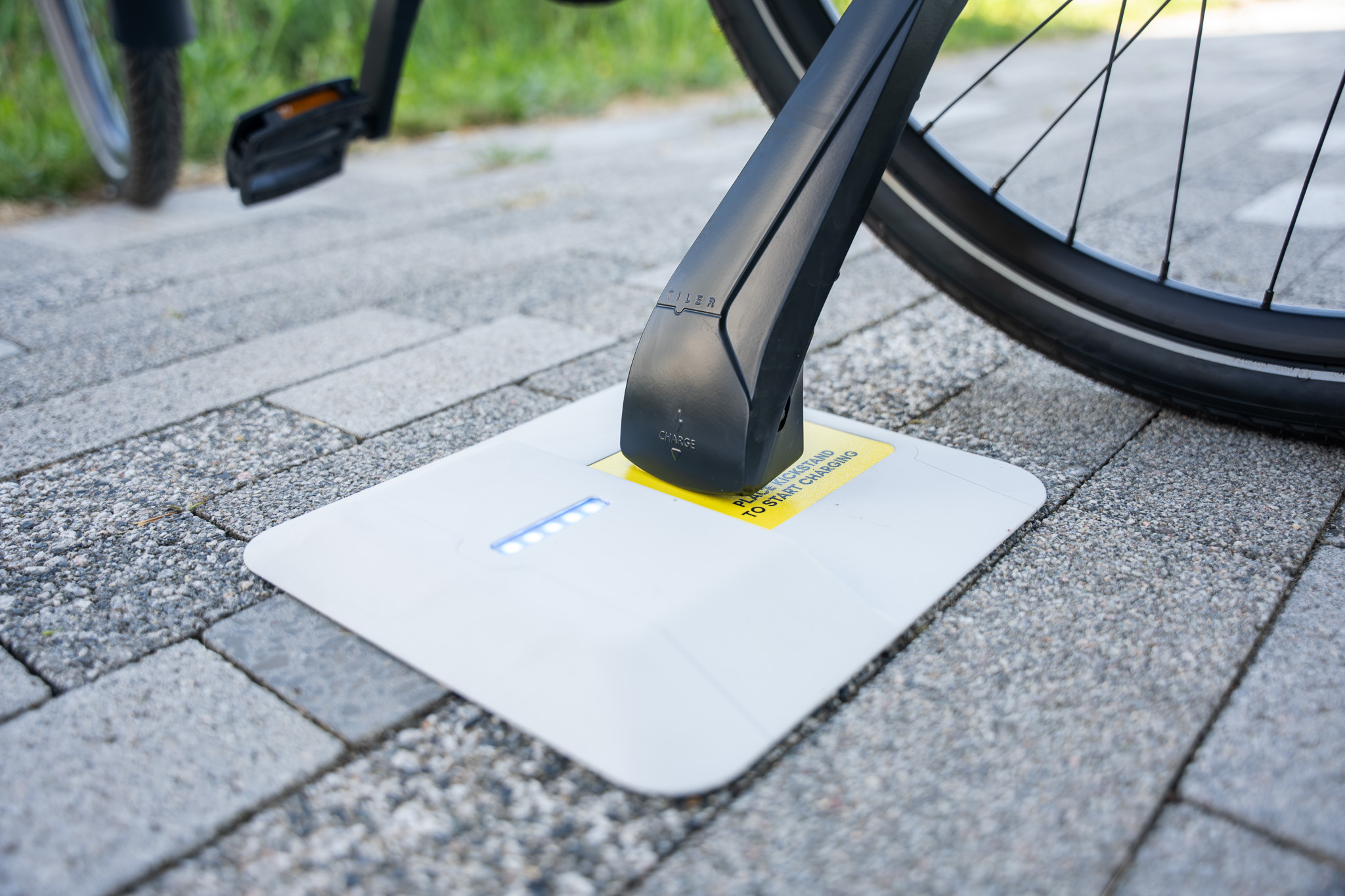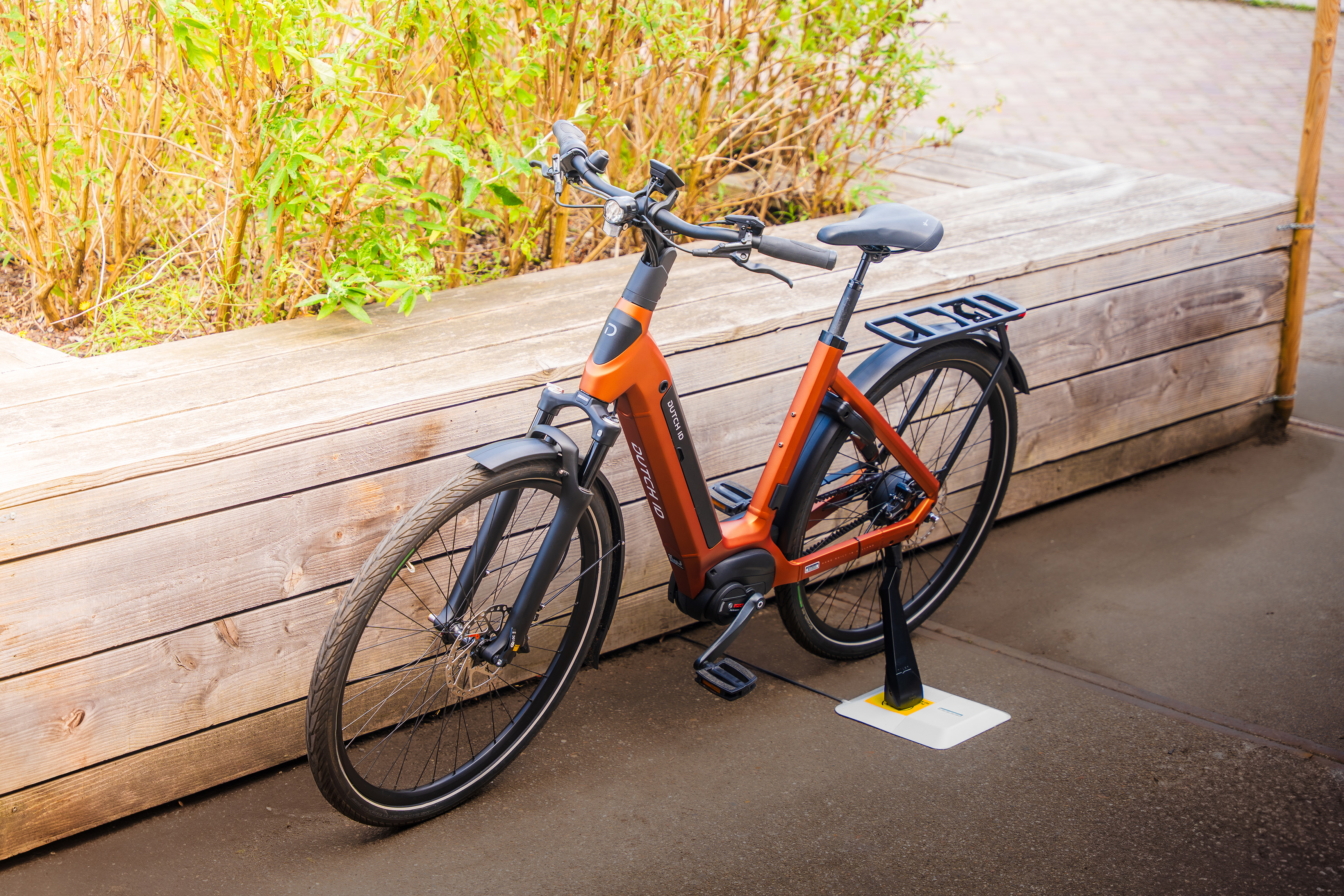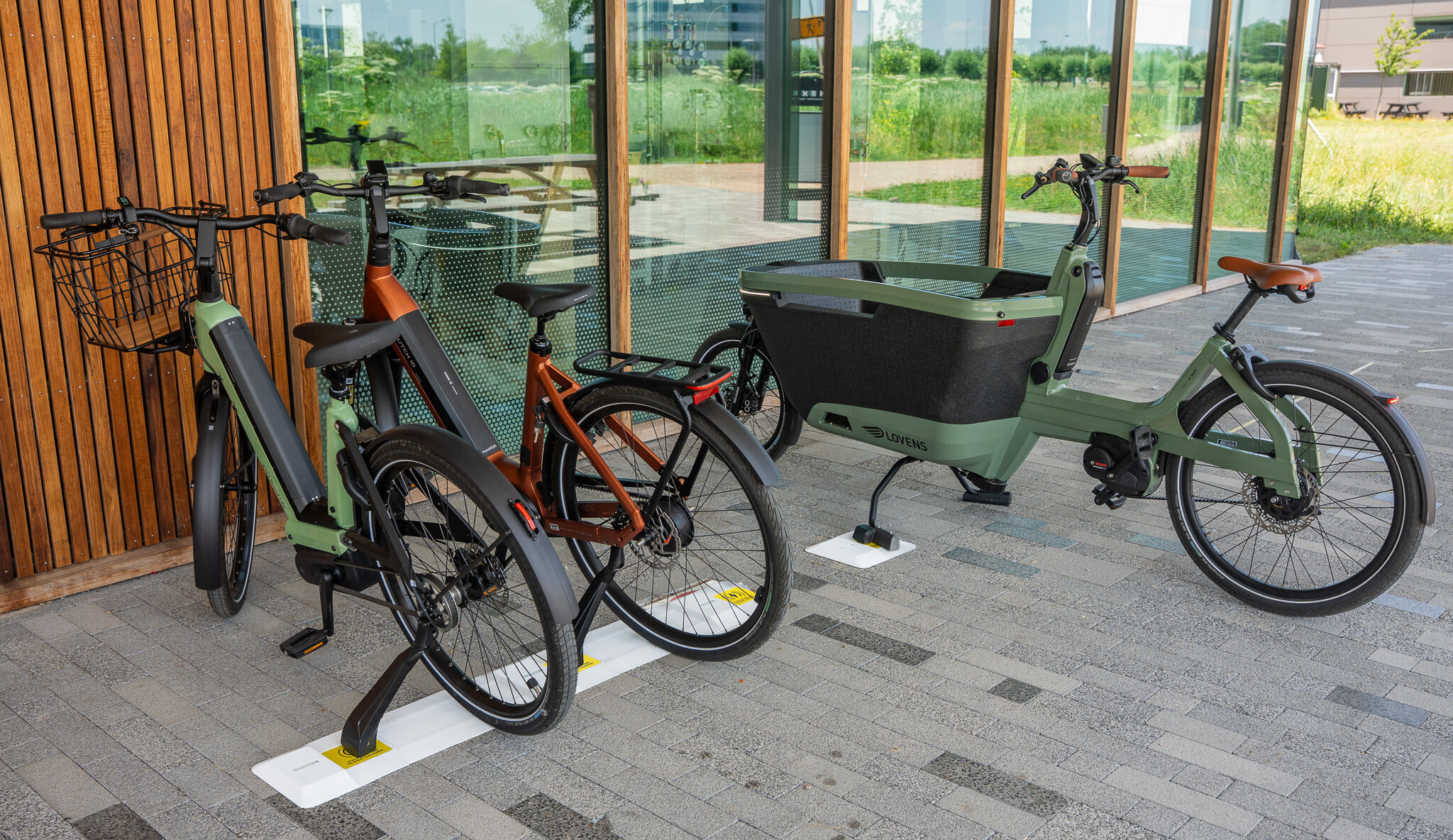The Delft start-up Tiler is introducing a new generation of wireless charging technology for e-bikes. What began as a project at TU Delft has grown into a promising scale-up with international ambitions.
As electric cycling gains ground, so too does the need for smarter charging solutions. Anyone who owns an e-bike will recognise the scenario: overloaded sockets and last-minute dashes outside in your pyjamas to plug in the battery. Tiler aims to put an end to that. Their innovation? A wireless charging system built into a paving stone – the so-called Tile – that automatically charges your bike when it’s parked in the right spot.
The technology behind Tiler was developed at TU Delft by Professor Pavol Bauer (Faculty of Electrical Engineering, Mathematics and Computer Science). “I always dreamed of a network of solar-powered charging points that you could simply ride up to – no cables, no chargers. I wanted people to be able to charge their bikes anywhere in the country,” he says.


The first version was installed on the TU Delft campus in 2016. Since then, the technology has come a long way. Bauer explains: “The big challenge is transferring a significant amount of power wirelessly across a small surface, while ensuring the system can communicate with a wide variety of bike batteries. We’ve now optimised the power electronics, developed communication protocols, and secured patents.”
With the launch of their latest product line – the Tiler Cube and Tiler Compact – the company is now making wireless charging available to consumers as well. “The main change is the thickness. To serve more customers, we had to simplify the installation process,” says Joris Koudijs, CTO at Tiler. “We’ve gone from an installation costing €800 to a solution we’re aiming to bring to market for around €250, including the stand.”
That was no small technical feat. “We managed to eliminate entire components by using smarter electronics, such as next-gen gallium-nitride MOSFETs. That allowed us to draw power directly from the mains and at the same time increase efficiency,” Koudijs explains.
Until now, Tiler has mainly focused on the business market – bike-sharing systems, hotels, and the like. But the new model targets individual consumers. “There are around 5.5 million e-bikes in the Netherlands, and less than 1% are used for business. The private market is vastly bigger,” says Koudijs, who uses a charging tile himself. “I haven’t removed the battery from my cargo bike in over two years to charge it indoors. I honestly can’t imagine going back.”

This also positions Tiler as a contributor to the wider transition to sustainable mobility. “I might be a bad or a good example,” Bauer laughs. “I used to drive a lot, but since switching to an electric bike, I barely use the car. For distances between 5 and 10 kilometres, the e-bike is so easy and comfortable. It’s a brilliant way to commute to TU Delft or around the nearby cities.”
Tiler is now raising funds to finance the rollout of the new system. “We’re doing this because the product needs to be certified and must carry the CE mark,” Koudijs explains. “We also liked the idea of allowing people to become co-owners of Tiler.” The start-up has also received an MIT R&D grant and is in talks with investors and manufacturing partners.
Production will – where possible – remain in Europe. But the team is already looking beyond the Dutch market, partly because of the limited scale-up mindset locally. “That mindset needs to improve,” Koudijs believes. “The hourly wage of an assembly worker in China isn’t that different from one in the Netherlands anymore. It’s more about having the mindset to actually make large-scale production happen. That’s what makes the biggest difference. The tech is ready – now we need the will to produce at scale in Europe.”
Tiler expects to expand internationally in 2026, starting with Dutch bike manufacturers and dealers, and then working with distributors in Germany, France, Scandinavia and the UK. In the longer term, the company also aims to roll out public charging points. “You can imagine a future market for charging stations in public spaces – as long as enough bikes support our charging standard,” says Bauer.
The impact of Tiler’s system goes beyond convenience. It’s also safer than traditional chargers. “One of the main causes of battery fires is a battery that’s been dropped multiple times. With our tile, the battery stays in the bike, so we prevent that from happening,” says Koudijs. The system is already proving suitable for cities like Rotterdam and Amsterdam. “Residents are allowed to place charging infrastructure on the pavement. Our tile fits that requirement perfectly.”
For Bauer, it’s ultimately about technology serving society. “We’re developing this because we believe in electric cycling and in cities with fewer cars. With Tiler, we want to contribute to that future.”